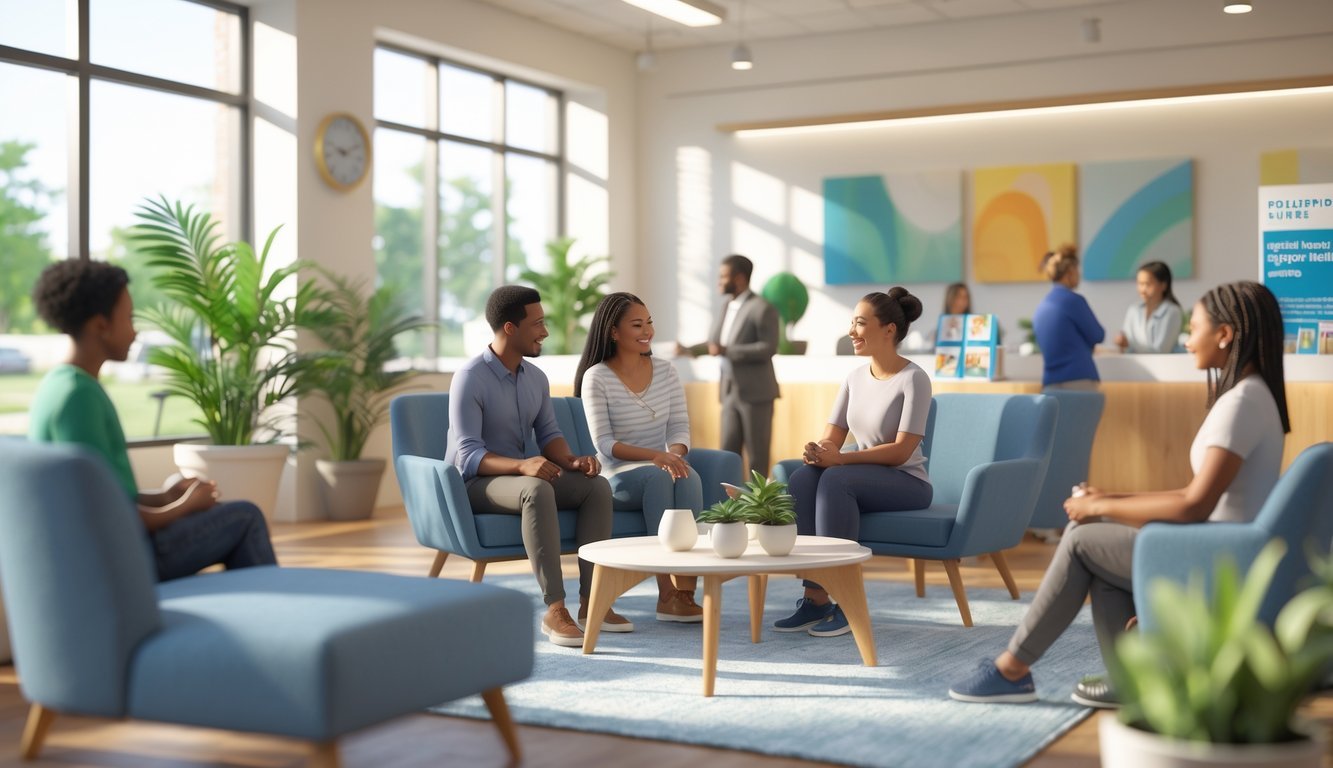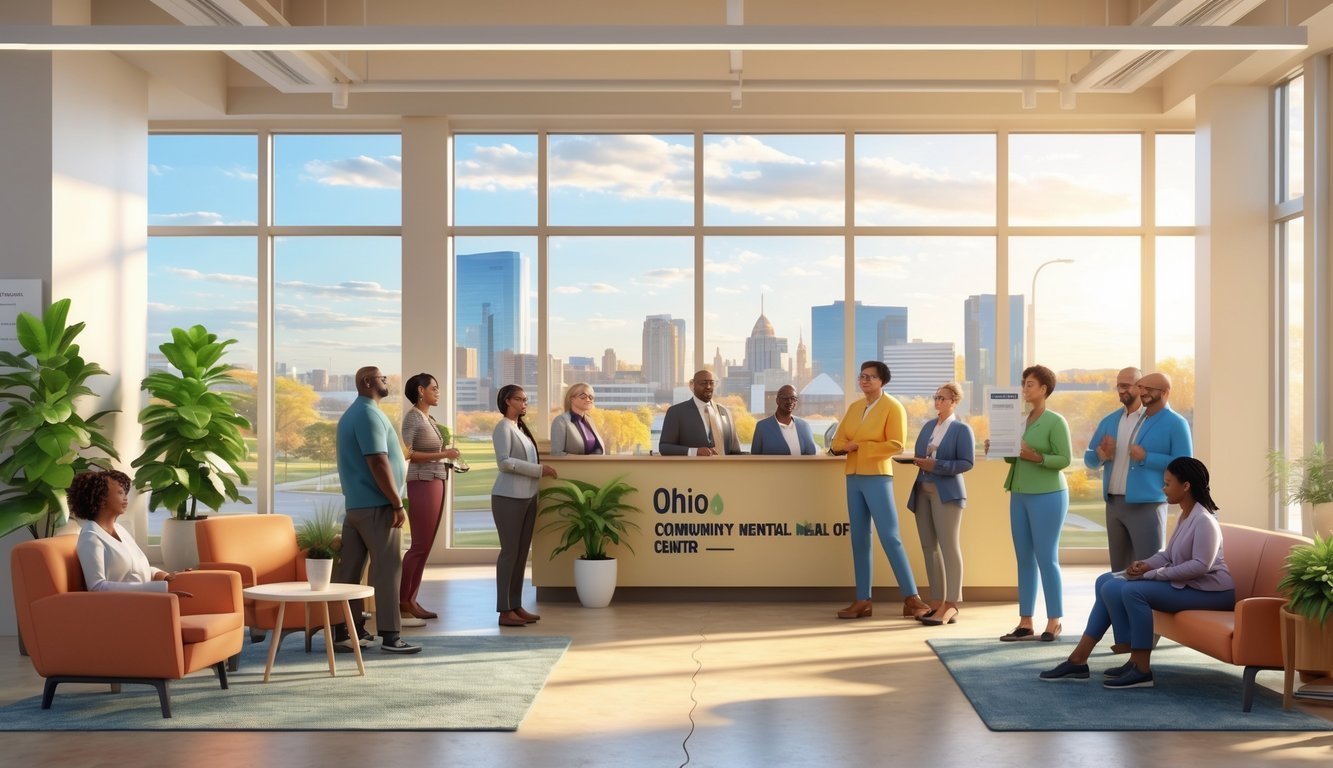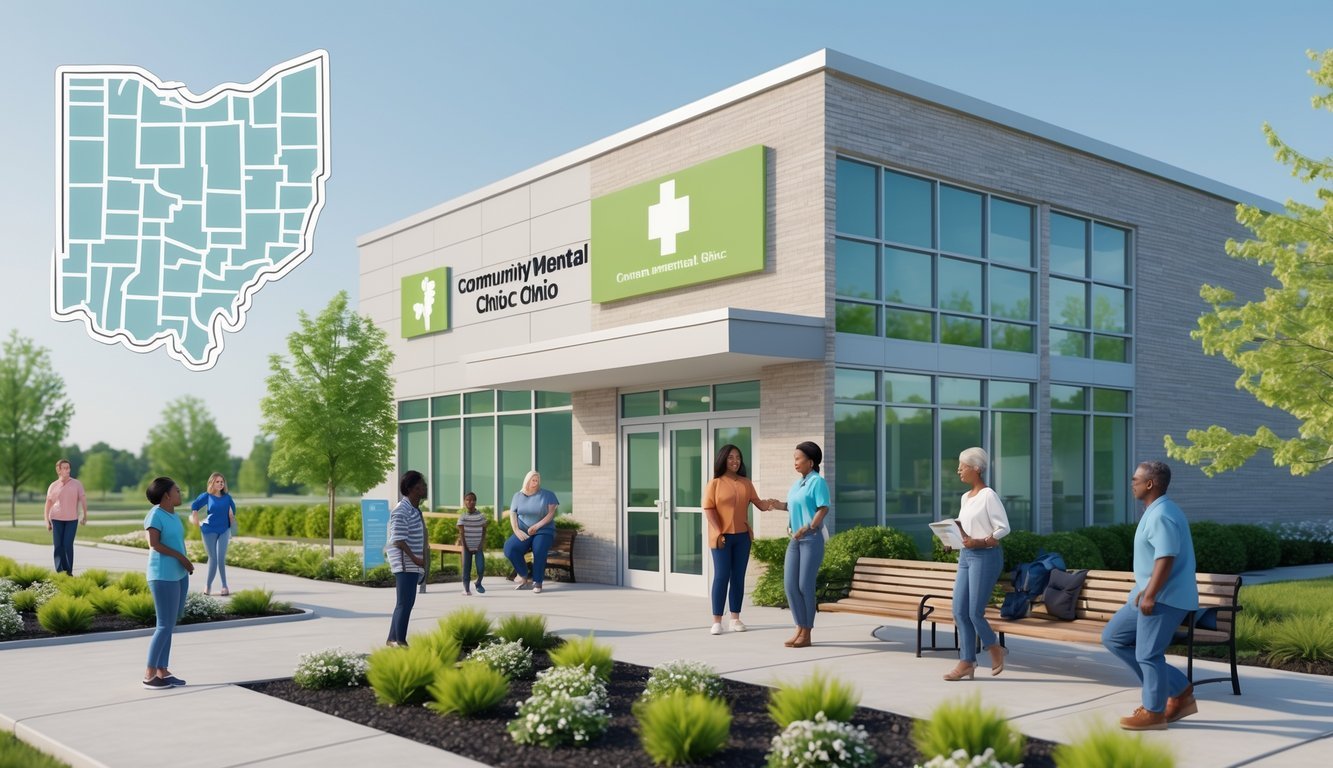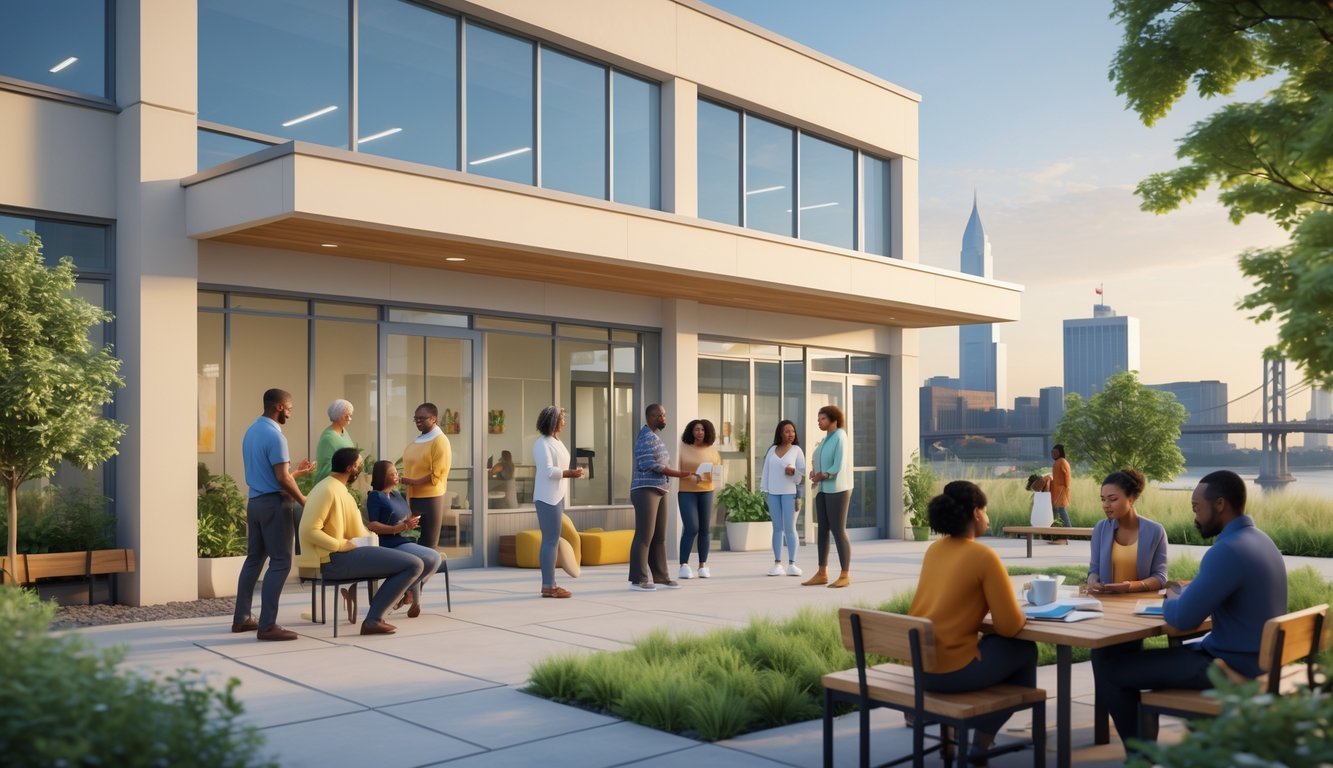PsychNewsDaily Publishers
100 Summit Drive
Burlington, MA, 01803
Telephone: (320) 349-2484
PsychNewsDaily Publishers
100 Summit Drive
Burlington, MA, 01803
Telephone: (320) 349-2484
Ohio offers various free mental health services, including crisis hotlines, outpatient treatment, and specialized programs for youth, ensuring accessible care for residents regardless of income.

Mental health support shouldn’t depend on your ability to pay. Ohio actually offers a bunch of free services to help people get the care they need.
Whether you’re in a crisis, dealing with ongoing mental health stuff, or just need someone to talk to, there are real options. The state gives you several ways to get help without worrying about cost.

Ohio residents can get free mental health services through state programs, community health centers, crisis hotlines like the 988 Suicide and Crisis Lifeline, and special programs for different age groups. These services include everything from immediate crisis help to ongoing therapy and support groups.
Knowing what’s out there and how to reach these resources can mean the difference between struggling alone and getting the support you deserve.
From big hospital systems with emergency mental health services to local community programs, Ohio has built a support network that tries to meet you wherever you are in your mental health journey.

Ohio gives free mental health services through state programs, community centers, and crisis hotlines if you meet certain requirements.
These services include emergency crisis support, outpatient treatment, and special programs for youth and adults.
You can get free mental health services in Ohio if you don’t have insurance or have a low income.
State psychiatric hospitals help patients who are uninsured or indigent.
Most programs use sliding fee scales based on your income and family size. Usually, you qualify if your income is below 200% of the federal poverty level.
Students at Ohio universities often get free counseling services. Ohio State students can get up to $2,000 for mental health care through their Student Advocacy Center.
Emergency services are open to everyone, no matter your insurance or ability to pay. Crisis hotlines and mobile teams help right away, no cost.
Crisis and Emergency Services
24/7 crisis hotlines and text support
Emergency psychiatric evaluations
Mobile crisis response teams
Outpatient Treatment
Individual and group therapy sessions
Psychiatric evaluations and medication management
Case management services
Specialized Programs
Mobile Response and Stabilization Services (MRSS) gives free, fast help for youth aged 20 and under. Teams usually show up within an hour.
Community mental health centers offer ongoing treatment programs. These might include substance abuse counseling and support groups.
The 988 Suicide and Crisis Lifeline gives free, confidential support any time. You can call, text, or chat with trained counselors 24/7.
Ohio CareLine connects you to behavioral health pros 24/7 at 1-800-720-9616. This service can help your family find local mental health resources.
The Ohio Department of Mental Health and Addiction Services runs six regional psychiatric hospitals. These hospitals give inpatient care and act as the state’s mental health safety net.
Local ADAMH boards in all 88 counties help guide community mental health services. They connect you to treatment options in your area.

Ohio has mental health services through nonprofits, local clinics, schools, and crisis programs.
These providers give free or low-cost care in both cities and rural areas across the state.
NAMI Ohio stands as the largest grassroots mental health group in the state. Through their local chapters, you can join free support groups, educational programs, and get advocacy help.
Their peer support programs connect people with lived experience to others who need help. These groups meet regularly in cities like Columbus, Cleveland, and Cincinnati.
Key NAMI Ohio Services:
Support groups for individuals and families
Educational classes about mental health
Helpline for crisis and resource info
Advocacy training and outreach programs
Other statewide nonprofits like Mental Health America of Ohio and local United Way chapters often team up with community centers to offer counseling.
Plenty of faith-based groups also provide free counseling with licensed therapists. You can find these by reaching out to local churches, synagogues, or mosques.
The Columbus Free Clinic gives mental health services to uninsured adults in Franklin County. You’ll need to meet their income requirements.
Their team includes licensed counselors and social workers. They offer individual therapy, group counseling, and psychiatric evaluations.
Other Local Free Clinics:
Community health centers get federal funding to help low-income people. They use sliding-scale fees based on your income and family size.
Federally Qualified Health Centers are in all 88 Ohio counties. You can find one near you using the Health Resources and Services Administration website.
Ohio public schools provide free mental health support through guidance counselors and social workers. Many districts have expanded these programs as student mental health needs have grown.
Universities have counseling centers for students. Services usually include individual therapy, group counseling, and crisis help.
Major University Programs:
Community colleges also support student mental health. Services might include short-term counseling and referrals.
Some school districts even place therapists right in schools by working with local agencies. That way, students don’t have to worry about getting a ride to appointments.
The 988 Suicide and Crisis Lifeline gives free, confidential support any time you need it. You can call, text, or chat with counselors 24/7.
Ohio State’s emergency mental health services offer walk-in crisis care for people in the Columbus area.
Mobile crisis teams travel to help with mental health emergencies across Ohio. These teams include mental health pros who can give immediate support and connect you to ongoing care.
Crisis Resources Available:
24/7 crisis hotlines in major cities
Mobile crisis response teams
Emergency psychiatric evaluations
Short-term crisis stabilization programs
Many hospitals also offer psychiatric emergency care through their ERs. These services help during serious mental health crises.

Ohio cities have their own mental health services based on local needs and funding. Each place runs unique programs through community centers, hospitals, and state partnerships.
Cleveland has several free mental health options through local organizations. The city connects people to state programs and community-based services.
You can reach crisis support through the 988 Suicide and Crisis Lifeline any time. Calls, texts, and online chats are all free.
Cleveland’s community health centers use sliding scale fees. Many offer completely free services if you don’t have insurance.
Available Services Include:
Walk-in crisis counseling
Support groups for depression and anxiety
Substance abuse programs
Family therapy sessions
Local hospitals in Cleveland also provide emergency mental health care. You can get help right away during a mental health crisis.
Alliance offers mental health resources through regional partnerships. The city works with state programs to provide free services for residents.
You can get help through Ohio’s statewide network. Mobile Response and Stabilization Services support youth under 21 during emergencies.
Alliance connects families to these mobile crisis teams. They usually arrive within an hour after you call.
Key Features:
Free service for youth aged 20 and under
Trained pros respond quickly
Help with mental distress
Support for family and school issues
Community groups in Alliance also provide ongoing support. These programs offer counseling and peer support at no cost.
Kent provides mental health services through university partnerships and community programs. The area benefits from academic resources and research.
Local community centers offer free counseling sessions. These programs help people manage stress and mental health challenges.
You can join support groups that meet regularly in Kent. Topics include grief, anxiety, and depression.
Available Programs:
Weekly support group meetings
Individual counseling appointments
Crisis intervention services
Mental health education workshops
Kent also connects people to state resources through Ohio’s mental health department. These programs provide extra funding for free services.
Troy residents can access mental health support through regional hotlines and crisis services. The area joins statewide mental health initiatives.
You can call the 988 crisis line for immediate support from Troy. This service is free 24/7.
Troy works with nearby cities to share mental health resources. This partnership helps bring more services to residents.
Regional Services Include:
24/7 crisis hotline access
Mobile crisis response teams
Peer support programs
Family crisis counseling
Local churches and community groups in Troy also offer mental health support. These programs provide counseling and support groups at no charge.
Finding free mental health services in Ohio means knowing where to look and what you need to qualify. Ohio has several options like community health centers, crisis hotlines, and telehealth that can give both quick and long-term support.
Start by calling your local community mental health center. These centers exist in every Ohio county and use sliding-scale fees based on your income.
Call 211 to get connected with local resources. This free service links you to mental health programs, food assistance, and housing support in your area.
Key places to search:
County health departments
Federally Qualified Health Centers (FQHCs)
Faith-based organizations
University counseling programs open to the public
Support groups through NAMI Ohio chapters
Visit your local library for computer access and help searching online. Librarians often know how to find mental health resources.
Ask local hospitals about charity care programs. Many offer free or low-cost mental health services for people without insurance.
Check with social services offices. They usually keep lists of free mental health providers and can help you see if you qualify for Medicaid.
Most free services ask for proof of income and residency. Gather pay stubs, tax returns, or unemployment papers before you call.
Documents you may need:
Photo ID
Proof of Ohio residency
Income verification
Insurance cards (if you have any)
Medical records from past providers
Try calling early in the morning for better chances at an appointment. Free clinics fill up fast and sometimes have waiting lists.
If you don’t qualify for totally free services, ask about sliding scale fees. These programs adjust costs based on what you can pay.
Be honest about your financial situation. Providers want to help and might have extra resources or payment plans.
If one place has a long wait, ask them for referrals to other programs. Staff usually know about more free services in your area.
A lot of Ohio providers now offer free telehealth appointments. You can book a video or phone session, which means you don’t have to worry about getting there or paying extra for travel.
Free online mental health resources:
You might want to try some mental health apps with free basic features. Sanvello, MindShift, and Calm give you coping strategies and meditation exercises right on your phone.
Online support groups are out there too, and you can join through places like NAMI or Mental Health America. These groups meet often and let you connect with others for free.
Your local community mental health center might have telehealth options as well. A lot of places started offering remote appointments and kept them going for regular care.
Make sure you’ve got a good internet connection and a private spot for video sessions. It helps to test your tech before your first appointment, just to keep things running smoothly.